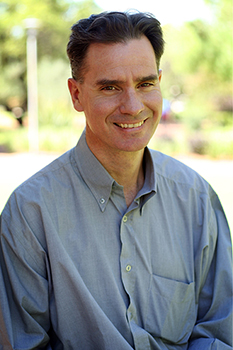
Dr Johann Rossouw |
Dr Johann Rossouw, Senior Lecturer in the Department of Philosophy at the University of the Free State, was recently selected as one on the winners of the 2015 ATKV SA (Afrikaanse Taal- en Kultuurvereniging) Academy Awards. Dr Rossouw was one of only six winners that were honoured nationwide for their academic articles.
ATKV SA Academy Award
This award has immense value for Dr Rossouw, since “it’s proof that original endemic thinking is still valid today, despite the massive pressure on Afrikaans. It also undermines the parochial view that English is the only language in which thought takes place.”
The annual ATKV SA Academy Awards honours six Afrikaans articles that are published in accredited journals in a specific year. Four of the prizes are awarded for articles in the Humanities and two for articles in the Natural Sciences. The South African Academy for Science and Arts handled the selection process.
First theological-philosophical criticism on Stiegler
Dr Rossouw was honoured for two articles in the Humanities that were published on Litnet Academic. The articles deal with the theological-philosophical approaches of the first two volumes of Bernard Stiegler's influential La Technique et letemps (Technics and Time) trilogy. “Stiegler wrote the trilogy in conversation with Heidegger's Being and Time,” Dr Rossouw says. “With Heidegger claiming that the technique closes off our world, Stiegler argues that the technique helps to unlock and establish our world as a unique kind of memory in certain conditions. That is why Stiegler argues that the technique is the life lived through other means than life itself.”
The essence of Dr Rossouw's criticism against Stiegler is that he “pursues Christianity through means other than Christianity itself. To my knowledge, this is the first theological-philosophical criticism on Stiegler, and to all intents and purposes the first criticism on his work, with one or two exceptions.”